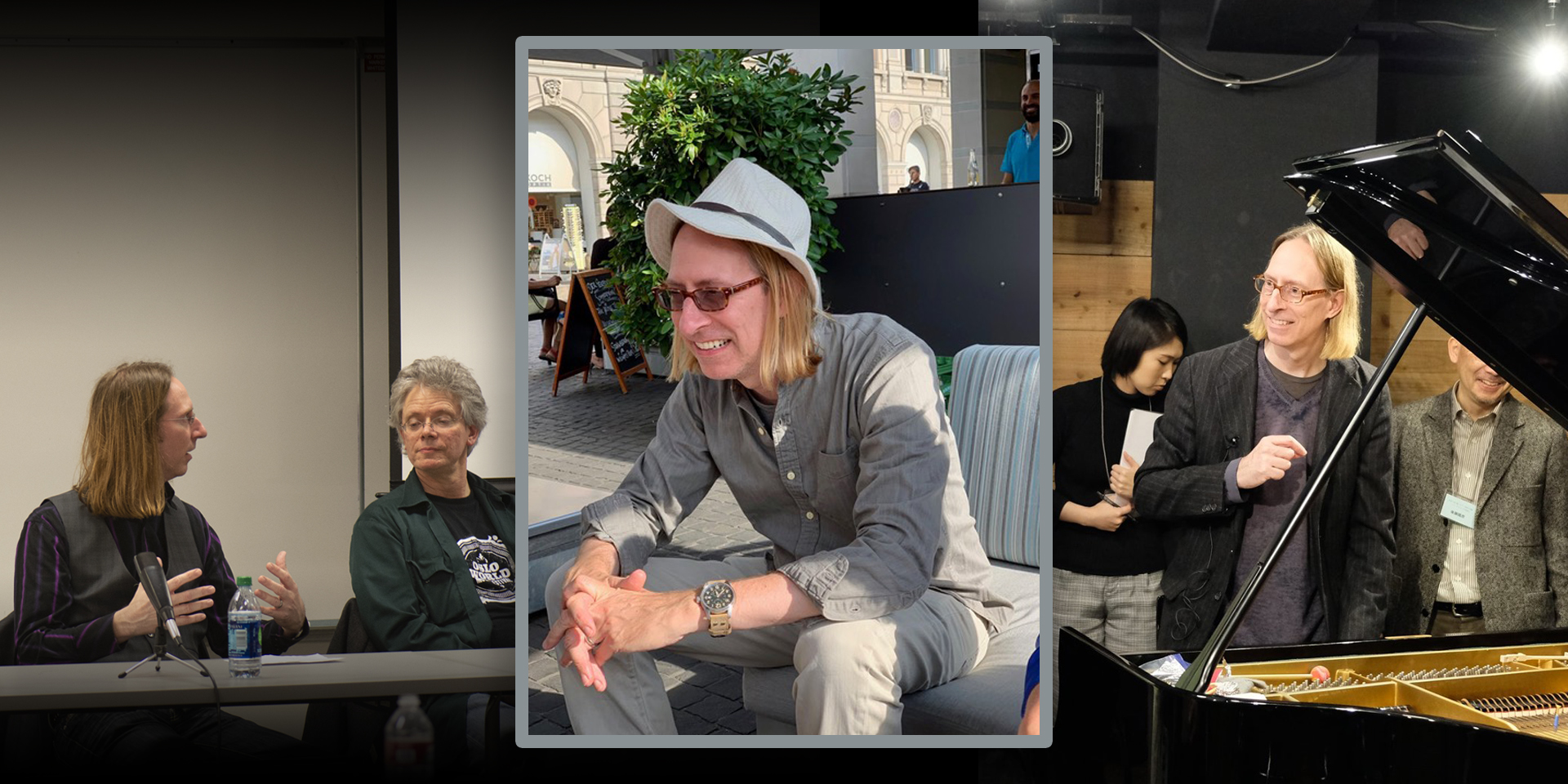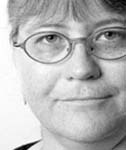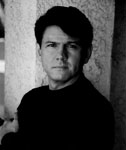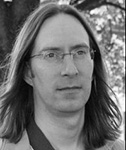—James Joyce, A Portrait of the Artist as a Young Man"Absence, the highest form of presence."
About Alan Shockley
1970-2020
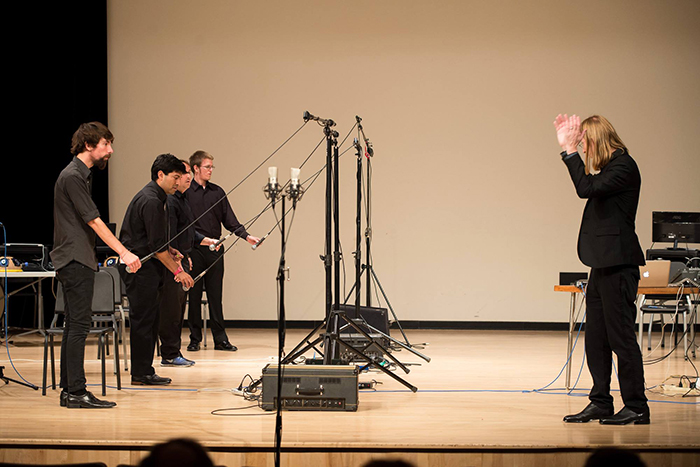
Composer, scholar, educator, colleague, mentor, husband, father, and friend, Alan Shockley, Professor of Music at the California State University, Long Beach, was a rare creative intellect. He died at home with his family on September 29, 2020 at the age of 50.
Born in the rural city of Warm Springs, Georgia (famous for having a population of fewer than 475 residents and one stop sign, as he told it), Dr. Shockley studied composition and theory at the University of Georgia, The Ohio State University, and Princeton University.
Dr. Shockley joined our faculty at CSULB in the fall of 2008. During his all-too-brief time with us, he inspired faculty and students alike with his voracious and omnivorous appetite for culture. He was able to brilliantly introduce connections between music, art, and literature (particularly Anthony Burgess and James Joyce) by utilizing disparate subjects including The Simpsons, Madonna’s "Ray of Light" video, Grand Theft Auto, and Donna Summer. Students in his courses were introduced not only to classical music, but to punk rock, avant-gardism, free jazz, shape note hymns, chance music, and the toy piano (with side trips into discussions of Peppa Pig) in ways that only Dr. Shockley could manage.
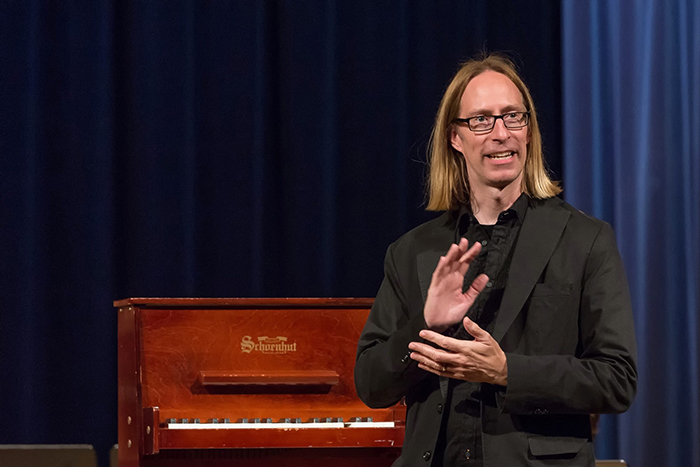
Shockley was a prolific composer who often called for unconventional and unexpected combinations of instruments, voices, and electronics. He was particularly skilled at expanding the sound worlds and capabilities of Western instruments. His gorgeous knots and crosses (2015) for solo harp calls for four of the instrument’s strings to be tuned microtonally. For his BCCM colleague John Barcellona, Shockley wrote a work for a solo flute that is equipped with a special glissando head joint: Hoc florentes arbor (2017). This work also uses one of Shockley’s specialties—nontraditional techniques and preparations for the piano, a topic on which he authored a book-length study. Shockley wrote extensively for the piano as both a solo and chamber instrument, often calling for players to use the interior of the instrument as well as the keyboard. His piano writing is on display in the two-piano version of his beautiful wndhm (1785), which includes a sparse texture of plucked and strummed strings in combination with notes played conventionally on the keyboard. A number of Shockley’s compositions include instruments that might be dismissed as playthings, like the toy piano or the melodica, but he managed to strip away their novelty associations and make them sound profound. Several of his pieces explore relationships between music and text, reflecting his love of literature (see, for example glint in river’s bed [2010], or I feel open to… [2011]). It difficult to sum up Shockley’s oeuvre in a single paragraph, but many of his works are ethereal, meditative, spacious, perhaps even transcendent. His 2018 chamber work parting song, the title of which now seems poignant, falls into this category.
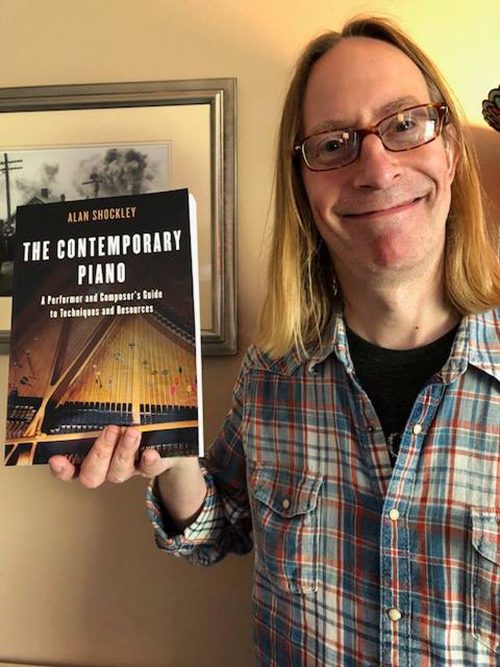
A tireless thinker, creator, and scholar, Dr. Shockley garnered many accolades for his compositional and scholarly work as evidenced by a career packed with publications, artistic residencies, and numerous prestigious grants and awards. His music has been performed and recorded locally, regionally, nationally, and internationally. His frequent artistic collaborations, including his work with the Kojiro Umezaki of the Silk Road Ensemble, pianist Vicky Ray, and The California E.A.R. unit to name a few, have provided inspiration and professional opportunities for our students, particularly those in the composition department and the Bob Cole Conservatory’s New Music Ensemble. For many of his students, these collaborations facilitated concerts in which their works were performed by outstanding artists and they also had the opportunity to perform new works and commissions.
During his time at CSULB, Dr. Shockley authored two books: The Contemporary Piano: A Performer and Composer’s Guide to Techniques and Resources (Rowman & Littlefield, 2018); and Music in the Words: Musical Form and Counterpoint in the Twentieth Century Novel (Ashgate, 2009). His critical edition of Anthony Burgess’s experimental novella Mozart and the Wolf Gang, part of the Irwell Edition of the Works of Anthony Burgess, is due to be published in June 2022 by Manchester University Press.
Dr. Shockley was a deep thinker and a sincere, careful, and thoughtful speaker. His calm manner provided welcome respite for any who knocked on his door and were welcomed into a discussion about interval identification, advanced harmonic function, R.E.M., Philip K. Dick, vanity license plates, or electric guitar. His loss is profoundly felt.
Alan Shockley is survived by his wife, Jessica Sternfeld, and his daughters, Harper and Zola.
